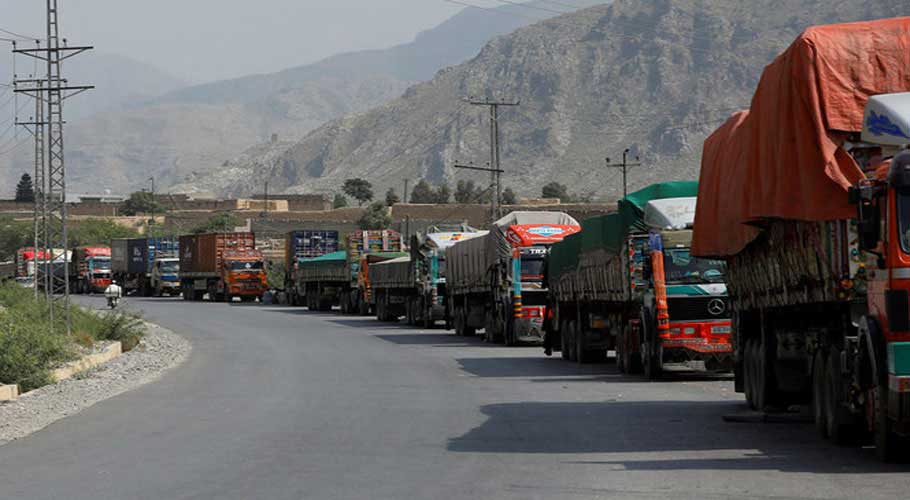Regional partnerships are a vital source of sustainable peace in the region. They create economic interdependence, which results in the collective economic growth of all the partner countries.
Pakistan, under its Vision East Asia Policy and Association of Southeast Asian Nations (ASEAN) Community Vision 2025, has a high potential for deeper collaboration between ASEAN and Pakistan. The chances for cooperation have increased since 2021, as Pakistan shifted its focus from geo-politics to geo-economics.
Pakistan’s official association with ASEAN started after gaining “Sectoral Dialogue Partner” (SDP) status from ASEAN in 1993. This included cooperation and developments in multiple sectors, mainly the three pillars of ASEAN, namely socio-cultural, economic, and political security.
In 2011, during the ASEAN-Pakistan Joint Sectoral Cooperation Committee’s (APJSCC) fifth meeting, both sides decided on an action plan for cooperation and identified several projects for the future. Regarding security, both parties agreed to promote maritime security cooperation in existing areas of collaboration, peace and security, counter-terrorism, piracy at sea, etc. In March 2019, the two sides expanded their partnership in various areas, includingviolent extremism and transnational crimes. Similarly, both are handling trafficking in person and illegal migrant issues in the region.
ASEAN is the fastest-growing economy with a combined GDP of USD 3.3 billion, making it the fifth largest economic power in the world. In comparison, Pakistan has the advantage of its geo-strategic location, a gateway to the Central Asian market after the CPEC project completion. To enhance economic cooperation, both must work together by reducing trade barriers, improving customs procedures, and providing easy market access. There are multiple goods that Pakistan can export, such as sports goods and fish food, in which Pakistan has a comparative advantage. On the other side, Malaysia is providing its automotive exports, namely Proton, the first brand to open its South-Asian production in Karachi since 2021.
People-to-people connection is always considered as vital in promoting multilateral or bilateral relations between the nations around the globe. In a recently held seminar on “Pakistan-ASEAN relations: Road to growth and prosperity” consul general of Thailand said that the people-to-people exchanges are the key to promote mutually beneficial relations between Pakistan and ASEAN nations.
Given this importance, Pakistani students should start exploring ASEAN countries’ scholarship opportunities while looking for studying abroad options rather than only aspiring for theCommonwealth. Similarly, tourism can also be a great source of fostering people-to-people connections. Moreover, Indonesia has taken the initiative, the Indonesia-Pakistan Youth Forum, to strengthen both parties’ socio-cultural pillars.
Parallel to the multiple opportunities ASEAN-Pakistan relations, there are some challenges thatlimit the benefits of relations between both parties. First is the geographical distance, creating hurdles in connectivity and trade flows. Similarly, bilateral trade is suboptimal due to limited awareness of each other’s markets and business opportunities.
There are some regulatory barriers to the trade agreements with some ASEAN countries like Thailand and Vietnam, respectively, which are in the negotiation process yet. Also, the trade balance is highly skewed toward ASEAN nations, which creates a trade imbalance. In 2022, Pakistan exported 3.3 billion USD to ASEAN nations while importing USD 8.83 billion.
To overcome these challenges, both parties should make some specific strategies to take action for future prosperity. Primarily, this includes improving connectivity by developing proper infrastructure, which serves as an economic corridor. Moreover, direct flights from Pakistan to every ASEAN country should be initiated, as Malaysia will soon start it on 31st of October 2023. Pakistan should establish close relations with the ASEAN Secretariat and each of the ten member countries to address regulatory barriers through mutual recognition and comprehensive trade agreements.
Furthermore, as Ambassador Muhammad Hassan recently suggested in his article a Joint Economic Commissions (JECs) between Pakistan and the ASEAN nations should be established. A significant public awareness campaign should then be launched to bring Southeast Asia and ASEAN to the attention of the corporate community, think tanks, educational institutions, and the media. A Pakistan-ASEAN Chamber of Commerce might offer a valuable venue for the business communities in Pakistan and its member nations to explore existing opportunities and build connections.
Given the prospective opportunities of mutually beneficial cooperation, Pakistan and ASEAN nations need to have regular discourses and trade exhibitions, make agreements for information-sharing, and create business forums. The recently held meeting on “Pakistan-ASEAN Relations” hosted by Pakistan Council on Foreign Relations (PCFR) – a Karachi-based forum – offered an excellent opportunity to individuals from all walks of life to explore avenues of cooperation that lead to collective growth.
The deliberations and recommendations of such meetings can serve as a cornerstone to develop a strong bond between Pakistan and ASEAN, and benefit from untapped potentials of collective growth.
ASEAN-Pakistan partnership: Prospects of mutually beneficial cooperation




